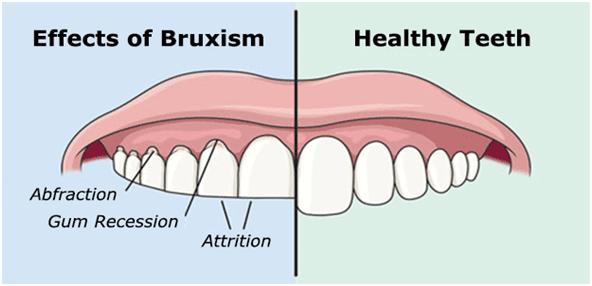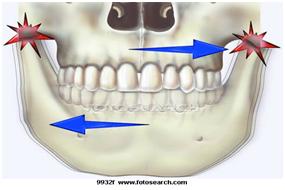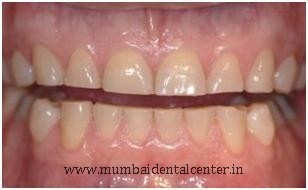Bruxism is a condition in which you grind, gnash or clench your teeth. If you have bruxism, you may unconsciously clench your teeth together during the day, or clench or grind them at night. About 70% of bruxism cases that occur during sleep are thought be related to stress and anxiety.
Signs and symptoms of bruxism may include :-
- Teeth grinding or clenching, which may be loud enough to awaken your sleep partner.
- Teeth that are flattened, fractured, chipped or loose.
- Worn tooth enamel, exposing deeper layers of your tooth.
- Increased tooth sensitivity.
- Jaw or face pain or soreness.
- Tired or tight jaw muscles.
- Pain that feels like an earache, though it's actually not a problem with your ear.
- Dull headache originating in the temples.
- Damage from chewing on the inside of your cheek.
- Indentations on your tongue.

Because grinding often occurs during sleep, most people are unaware that they grind their teeth. However, a dull, constant headache or sore jaw when you wake up is a telltale symptom of bruxism. Many times people learn that they grind their teeth by their loved one who hears the grinding at night.
Since this condition worsens every day, it should be treated as early as possible to avoid further wear of the teeth.
Treatment for Bruxism :-
- Once the reasons for stress are evaluated, steps should be taken to eliminate the causes.
- In milder cases, which are caught on early, a nightguard is given to the patient.
- In severe cases, a full mouth reconstruction is recommended to protect and preserve the teeth, the supporting bone and thereby the Temporo-Mandibular Joint.







